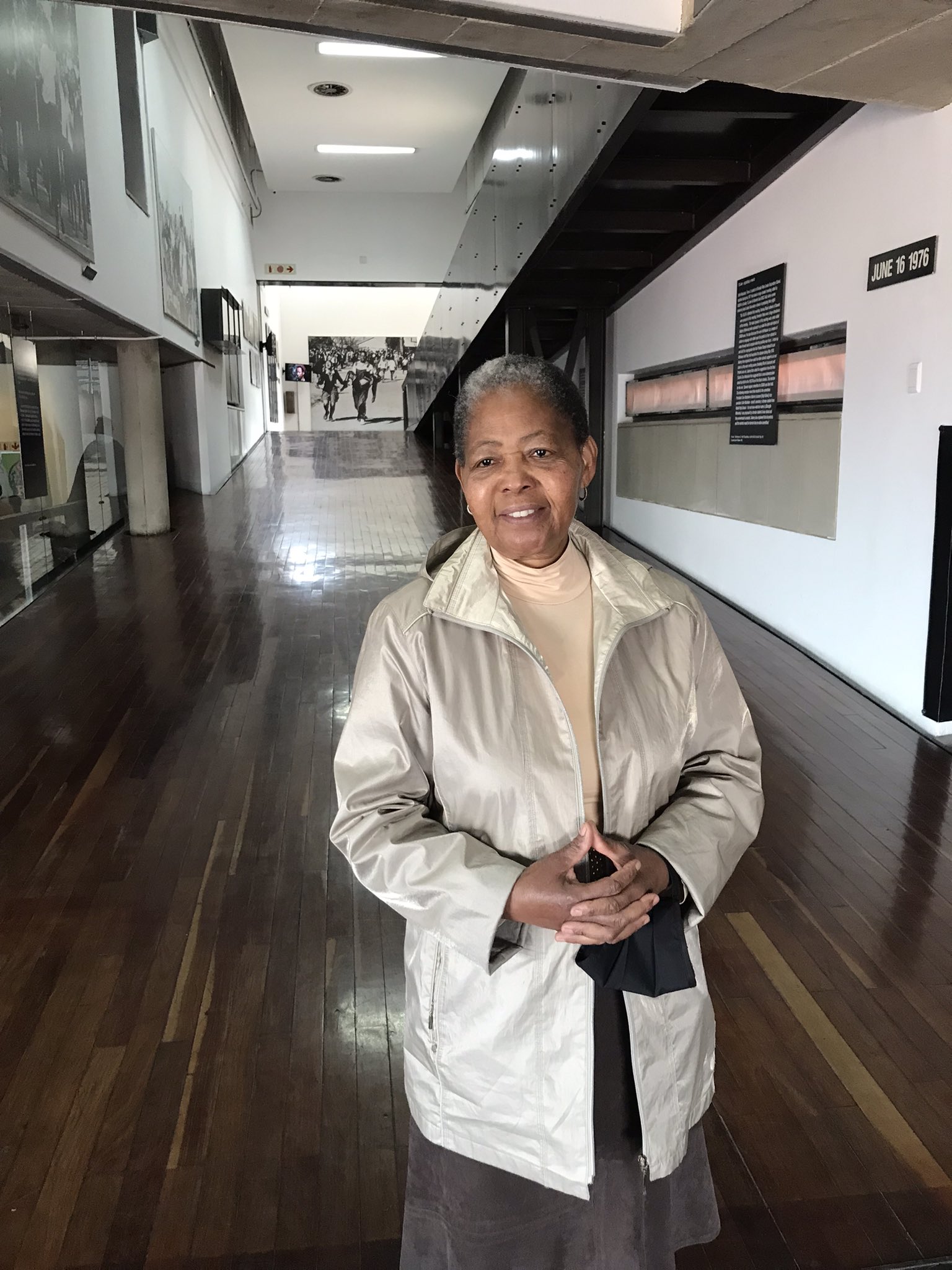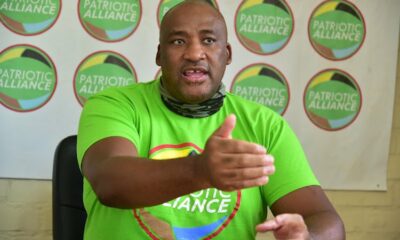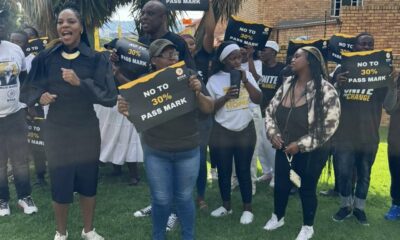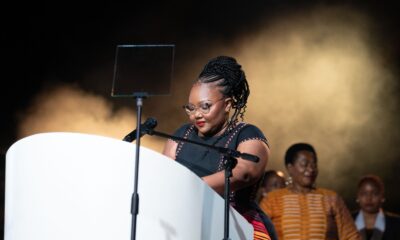News
“Find Your Cause”: Hector Pieterson’s Sister Sends a Wake-Up Call to Today’s Youth

On Youth Day 2025, Antoinette Sithole challenges a new generation to stand for something meaningful, just as her brother Hector unknowingly did in 1976
Antoinette Sithole remembers her brother, Hector Pieterson, not as a national icon or political martyr, but simply as the cheeky little boy who once got her into trouble for dodging train fare.
Yet on June 16, 1976, his name and image would be etched into South Africa’s collective memory, forever tied to the struggle for education and freedom. Hector, just 13 years old, was shot and killed by apartheid police during student protests against Afrikaans being enforced in black schools.
Forty-nine years later, at a commemorative event in Johannesburg, Sithole delivered a heartfelt plea to the youth of today: find your cause.
A different kind of youth activism
“We didn’t have smartphones or social media,” Sithole told a diverse audience of young people and activists. “But we knew when to put our foot down.”
To her, Youth Day is not just about looking back at history, it’s about asking what the youth are willing to stand for now. “Where are your placards against gender-based violence?” she asked. “Where are your campaigns against drugs in schools, or violence against teachers?”
She wasn’t scolding—her tone was more maternal than militant, but she didn’t hide her disappointment either. “Your cause doesn’t have to be like ours. But find one,” she urged.
Remembering Hector: ‘He shouldn’t have been there’
Though Hector’s death became the spark that ignited a global outcry, for Sithole, he remains the kid who loved Bruce Lee movies and once danced with laughter after outrunning train security guards.
“He was shy. Humble. He loved kung fu movies and was obsessed with Bruce Lee,” she said with a soft chuckle. “He wasn’t a hero to me. He was just my little brother.”
She was 16, in Form 3 at Phefeni Secondary School, when the shots rang out in Soweto. Hector had crossed the street to be near her when the police started firing again.
“He vanished into the crowd,” she recalled. “Then I saw Mbuyisa [Makhubo] carrying him. I ran after them… but by the time they got him to the clinic, he was already gone.”
Still haunted by Afrikaans in the classroom
One issue that remains painfully unresolved for Sithole is the continued requirement for many black learners to pass Afrikaans as a subject in order to advance a grade.
“We hated Afrikaans because it was the language of our oppressors,” she said. “And today, nearly 50 years later, children still have to pass it to move forward? That’s hard to accept.”
Sithole believes that instead of clinging to a language tied to apartheid, South Africa’s schools should embrace other African languages more fully.
“I’m not a politician,” she said. “But surely we can do better. Surely, after all that’s happened, we could have reimagined our education system.”
Where are today’s revolutionaries?
Dr. Tshepo Moloi, head of the History Department at the University of Johannesburg and fellow panelist, spoke about how the 1976 uprising was coordinated through the South African Students Movement and aligned with the Black Consciousness Movement.
“Youth in 1976 were not just participants—they were strategists, thinkers, organisers,” Moloi said.
Still, others reminded the audience that today’s youth aren’t entirely silent. Esinako Ndabeni, a guest at the event, pointed to the #FeesMustFall movement, saying it too demanded sacrifice and had achieved tangible victories in university policy and funding.
But Sithole’s point lingered: today’s youth have more platforms than ever before—yet the causes feel scattered, the focus fleeting.
The price of silence in 2025
There’s no denying that youth face different challenges in today’s South Africa. Unemployment is high. School violence is rising. Mental health struggles are widespread. But that doesn’t mean the time for protest is over—it means the mission has changed.
Social media users echoed Sithole’s message, with hashtags like #FindYourCause and #Hector49 trending on Youth Day.
One post read: “We went from marching with purpose to TikToking in school bathrooms. Wake up, gen Z. We’ve got work to do.”
Another commented: “Thank you Antoinette Sithole for reminding us that silence is complicity.”
A sister’s quiet strength
Now 65, Sithole has forgiven her brother’s killers. “I don’t want to know who did it,” she said. “I’ve made peace. I want my life to be positive.”
But peace, for her, doesn’t mean complacency. She still shows up. Still tells Hector’s story. Still challenges the next generation.
And on this Youth Day, nearly five decades after bullets took her brother, she stood before a new crowd of South African youth—not asking them to follow in her footsteps, but urging them to make their own.
“Find your voice,” she said. “Find your cause. And fight for it with everything you’ve got.”
{Source: The Citizen}
Follow Joburg ETC on Facebook, Twitter , TikTok and Instagram
For more News in Johannesburg, visit joburgetc.com



























